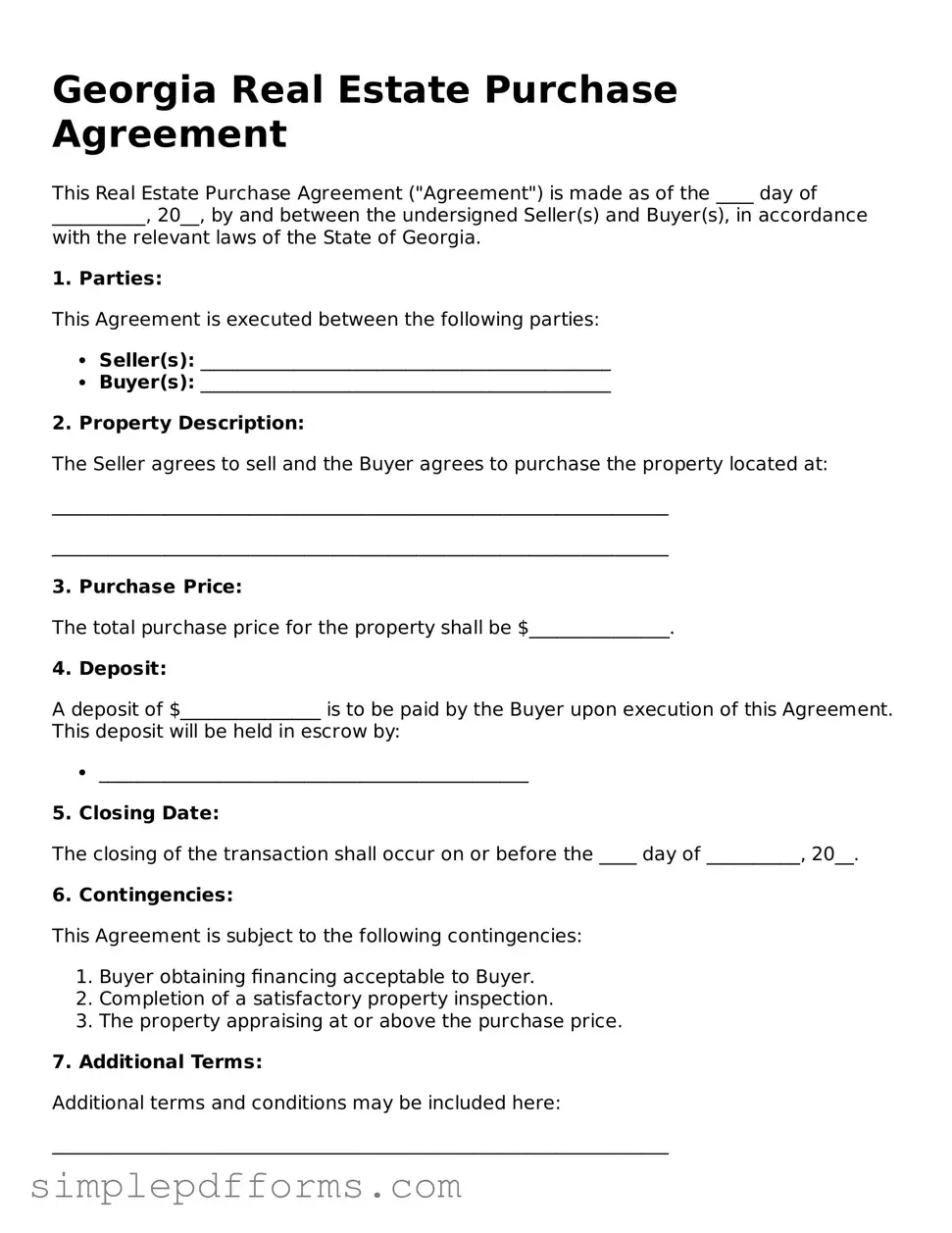Attorney-Verified Real Estate Purchase Agreement Document for Georgia State
The Georgia Real Estate Purchase Agreement form is a legally binding document that outlines the terms and conditions under which a buyer agrees to purchase real estate from a seller. This form serves as a critical tool in real estate transactions, ensuring that both parties understand their rights and obligations. By clearly detailing the specifics of the sale, it helps to minimize disputes and facilitate a smoother transfer of property ownership.
Open Real Estate Purchase Agreement Editor Now

Attorney-Verified Real Estate Purchase Agreement Document for Georgia State
Open Real Estate Purchase Agreement Editor Now

Open Real Estate Purchase Agreement Editor Now
or
Get Real Estate Purchase Agreement PDF Form
Your form is waiting for completion
Complete Real Estate Purchase Agreement online in minutes with ease.